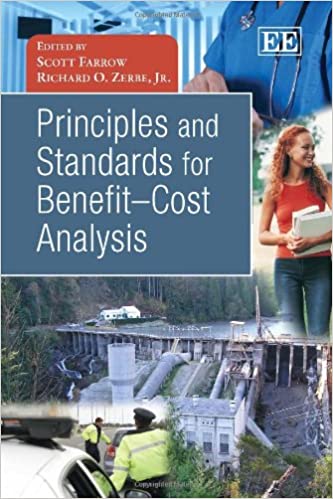
About the book: Benefit-cost analysis informs which policies or programs most benefit society when implemented by governments and institutions around the world. This volume brings together leading researchers and practitioners to recommend strategies and standards to improve the consistency and credibility of such analyses, assisting analysts of all types in achieving a greater uniformity of practice.
Although new analytical approaches are constantly being used and tested, this book supports the emergence of a professional culture adhering to a set of principles and standards that can be used to identify useful analytical processes and to discard less useful ones.
Contributors to this volume come from a wide variety of backgrounds and include authors of leading textbooks, editors of journals, former government officials, and practitioners whose analyses have shaped decisions about education, the environment, security, income distribution, and other vital social and economic policies.
Students and professors of public sector economics will find much of interest in this groundbreaking book. Practitioners working in government, non-profit organizations, and international institutions, including welfare economists, policy analysts, environmentalists, engineers, and others will also benefit from this volume’s sophisticated and practical recommendations.
Contributors: D.F. Burgess, J.H. Cook, T.B. Davis, S. Farrow, N. Garland, J.K. Hammitt, L.A. Karoly, H.A. Klaiber, J.B. Loomis, J.R. Lott, Jr, L.A. Robinson, T. Scott, V.K. Smith, A.R. Vining, W.K. Viscusi, D.L. Weimer, R.O. Zerbe, Jr.
